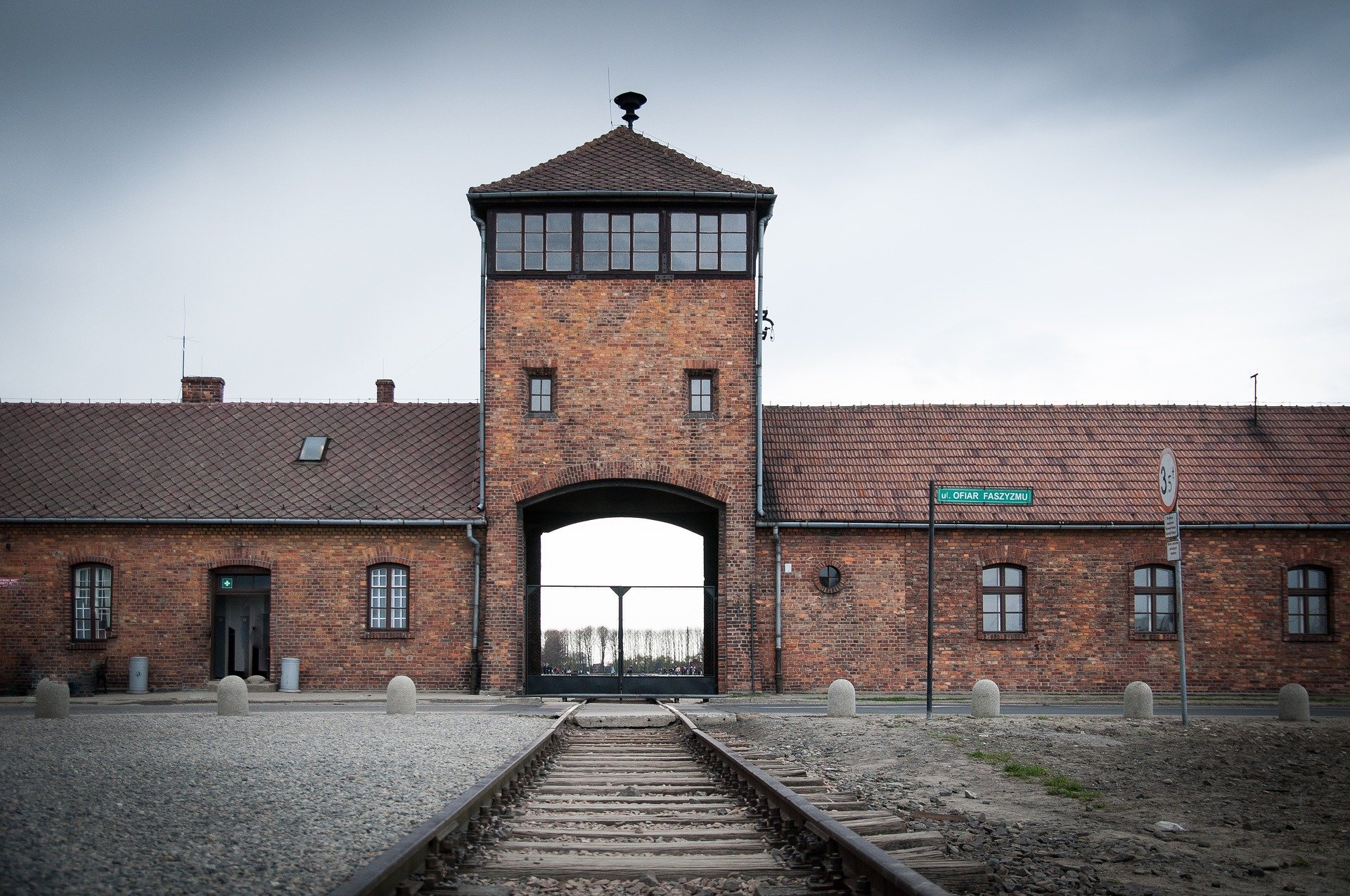Man's Search for Meaning is a book written by the Austrian psychiatrist named Viktor Emil Frankl. This work is set in the personal experiences of the author in a concentration camp, so I urge you to continue reading to learn more about it.

Man's Search for Meaning
This work makes an analysis of life inside the concentration camp, it also recounts extensively and in detail about the author's confinement in the Auschwitz concentration camp and other places for 5 years. It also narrates how he fights sadness and pessimism to continue having reasons to live.
The story also tells us and analyzes the psychology of the prisoner after being released, so it can be said that this work tells us about the experiences of all those people who were in that concentration camp together with the author of this book. Just as they tried to cope with the confinement and then his release.
About the Author
Viktor Frankl was born on March 26, 1905 and died on September 2, 1997 in Vienna, Austria, he was a prominent neurologist, psychiatrist, and philosopher. He is the founder of logotherapy and existential analysis.
He is one of the survivors of the Nazi concentration camps, including those of Auschwitz and Dachau where he was from 1942 to 1945. Based on all this experience, he decides to write this bestseller Man in Search of Meaning.
Story of Man's Search for Meaning
The first edition of Man's Search for Meaning was published in Germany by Vicktor E Frankl in 1946, which was so successful that a second edition had to be published. But nevertheless this second edition did not have the success of the first.
After 10 years of its first publication, he decides to release a third edition translated into Spanish, to erase the failure of the second, but the goal is not reached either. But the author decides to release a fourth edition of the name Man's Search for Meaning, which was translated into more than 20 languages and is considered one of the 10 best books in American literature.
[su_note]In this fourth edition an autobiographical account was added where the basic notions of logotherapy and existential analysis could be observed. Being this edition an absolute success.[/su_note]
Argument
The man in search of meaning recounts the experiences of the author in the concentration camps. This book is divided into 3 phases where it tries to answer this question: How does everyday life in a concentration camp affect the mind and psychology of the average prisoner?
All this happens in the small concentration camps, where the extermination was really carried out and not in the extensive and famous camps that we have all heard about. Below we will detail information about the story narrated in Man's Search for Meaning:
First phase
In this phase of The man in search of meaning occurs entirely within the concentration camps, in which they describe the mistreatment and humiliation that come to affect the minds of the prisoners. These prisoners were divided into categories to differentiate them:
[su_list icon=”icon: asterisk” icon_color=”#ec1b24″]
- The common prisoner is the most enslaved and the one who performs the heavy work required by his superiors.
- And the capo is that prisoner who has certain types of privileges, by the soldiers and who has the permission to rage against common prisoners.[/su_list]
field internment
The author recounts that when they arrived at the concentration camp they were stripped of all their belongings, to remind them of their family or loved ones. Since one of the constant thoughts that prisoners have was to return to their family or in the worst case keep their memories through their personal belongings.
Inside the concentration camp, the prisoners were victims of robberies, offenses, beatings and even psychological torture in order to make them feel worthless. Those better behaved prisoners had rights to certain privileges that are not even comparable to those of the capo.
The prisoners were not known by their names but through humiliating numbers or nicknames to be identified. Sick or disabled prisoners were made to work as if they were healthy people, although there were cases that preferred to kill them since they would not be useful in the concentration camp.
Prisoners who did their jobs were awarded random tickets that were prizes or bonuses such as a box of cigarettes to name an example. The effect caused by the tickets is that they allowed the soldiers to differentiate between common prisoners and capos.
Making the soldiers understand that common prisoners had a worthless life. When these prisoners were transferred on the train to the concentration camp there were approximately 1500 prisoners, in each train car there were between 70 to 80 prisoners watched by capos and soldiers.
All these prisoners were deceived into believing that they would travel to see a munitions factory, but when they observed that they were approaching Auschwitz, grief and sadness invaded them. The soldiers divided them into two rows, those on the left were those whose final destination was death and those on the right could continue living on the condition of forced labor, humiliation and torture.
Frankl was lucky to be part of the right row, but the humiliations were immediate as the prisoners were stripped of their clothing, leaving them completely naked. Among the few things that they gave to the prisoners was a bath soap, so that they could clean themselves.
When they arrived at the concentration camp, the prisoners had to forget about their past life, most of the prisoners were afraid of death and the possibility of being the next on the list. Other prisoners opted for suicide and made the decision to throw themselves against the electric wall in order to end their lives.
Second stage
In the second phase, the author of Man in Search of Meaning tells us about the apathy that characterized the prisoners, it is as if they were dead, that is, without emotion. When you arrived in the fields you longed for your home, your family, but you immediately felt disgust for what you were seeing.
Life in the countryside
Here they tell us all the filth that surrounded them, commenting on the skills of the prisoners who thought they were welding, and the soldiers who exercised brutality to make the prisoners falter. All this that Frankl observed made him recommend to his colleagues to be brave and safe for the duration of this hell.
Through this feeling of apathy, the prisoners helped themselves not to think about everything vivid, what worried them the most were the thoughts of their loved ones. In addition to the fact that the basic needs of any human being came to be thought of as an illusion that was very difficult to have.
To distract themselves, the prisoners told jokes to keep hope intact and forget the difficult moments lived there. Frankl was one of the few prisoners who came to gain the trust of the bosses and soldiers for his good behavior and willingness to do forced labor, he was awarded for his good behavior to be promoted in the kitchen area .
Staying busy helped Frankl keep thoughts of his family and loved ones at a distance, and spirituality helped him stay calm at all times. Due to his aptitude, he was also requested to help a camp heal sick people.
This confinement helped him in a certain way to be useful despite the circumstances he was experiencing, he took advantage of the confinement to meditate and find God. He comforted his companions in moments of weakness, when he worked in the kitchen he brought them bread secretly from the soldiers, that is, Frankl always tried to keep his spirit intact.
[su_note]Another of the lessons that this experience taught him is that no one can escape suffering and neither can they escape from destiny, since they are part of life. But all that hostility he received served to keep him on his feet without giving any of them pleasure in seeing him defeated, thanks to this he was able to move up and choose other life options. [/ Su_note]
But the author also tells that those who remained discouraged. And without any reason for life they were the ones who became the dolls for the strongest to stand out.
[su_box title=”Review: Man's Search for Meaning / Viktor Frank” radius=”6″][su_youtube url=”https://youtu.be/D6AHWahAVFA”][/su_box]
Third phase
In this phase, the author tells through psychology about the prisoner after he was released, what his attitude and behavior were like. And how I take being free again.
After liberation
When this happens, a state of complete relaxation occurs in prisoners after living in constant anxiety. But without any feeling of joy and it is where the author explains to his companions that what happened was that everything seemed unreal to them and that they were afraid to wake up to see that they had all dreamed of it.
Many of the prisoners who were victims of brutality only wanted to reproduce it, and they knew that all the vivid suffering could never be compensated, but returning home after having passed such a horrible experience gives them the feeling that they have nothing to fear. except from God. Where the only feeling that can describe the joy or happiness of being free is the opportunity to see your family again.
[su_box title=”Review: Man's Search for Meaning / Viktor Frank – Animated Summary” radius=”6″][su_youtube url=”https://youtu.be/INjLsMNIiao”][/su_box]
To conclude, we can say that Viktor Frankl taught us that despite being deprived of his freedom for a long time in a concentration camp, he always kept his spiritual freedom intact, which allowed him to do things during confinement that were impossible to achieve. Since thanks to the confinement awoke within him, the desire to support his fellow prisoners.
As he also realized, that when they regained their freedom, none of them were able to rejoice since in their minds they were still locked up by so much bitterness, so much physical and psychological abuse suffered. Which is logical in this type of situation where people continue to suffer from the consequences of the confinement and everything vivid.
[su_note]This is a very interesting story despite the circumstances that lead to its narration, but it shows that all human beings, at some point, have had to go through tragic situations but despite that; They decide to continue maintaining their positive attitude and spirit, which makes the circumstances more bearable.[/su_note]
If you want to continue learning about literature books I will leave you the following link so you can visit it the children of the horse.

